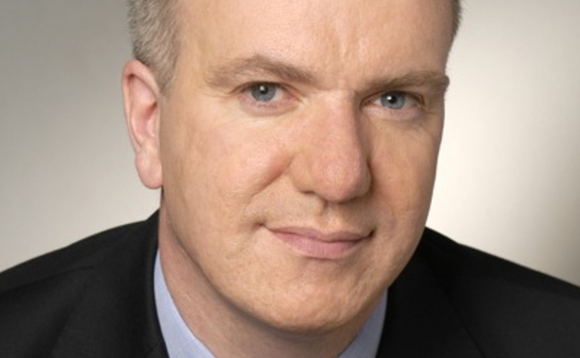
Traditional lenders holding firm in Germany, says SEB's Hewer

Ahead of the unquote" DACH Private Equity Forum in Munich on 7 October, SEB's Stuart Hewer speaks to Harriet Bailey about the local lending landscape.
Harriet Bailey: What is your view on the debt situation in Germany at present?
Stuart Hewer: Germany, while never quite living up to some people's expectations, has offered a steady source of deals since the 1990s. Currently, there is more activity in the small- to mid-cap segment compared to the large-cap space, but in terms of primary dealflow, there is a supply/demand imbalance. There are a lot of lenders looking to lend and not enough transactions. This is, of course, good for sponsors, as they can get better terms.
HB: Who is lending in this environment?
SH: It has been surprising how few banks have exited the market despite Basel III and the financial crisis. Some banks have changed their strategy, and most (SEB being a notable exception) stayed on the sidelines at the height of the recession, but most have come back to the market and started lending again. Many banks are quite flexible and can be aggressive in defending turf against an increasing number of incoming debt funds.
HB: Where are the alternative debt funds finding opportunities?
SH: Debt fund activity is more limited than I would have expected. Banks are not just giving up and passing the cup to the debt funds, and I think sponsors remain comfortable with the bank loan product. But there are areas where we have seen increased debt fund activity. These deals seem to fall into the space where leverage is higher than a senior debt structure. Some mid-market banks find it difficult to deliver a senior and mezzanine package on their own, and, for the sponsor, it is much easier to deal with one debt fund than put together a bank and a mezzanine provider.
Debt funds typically have a higher risk appetite and are able to offer more flexible documentation in respect to covenants and repayments, and they are potentially less bound by credit policies than banks. Also, there are no market standards to be factored in, as debt fund structures – be they unitranche or something else – are typically not syndicated. Maybe these types of deals will increase in number, but at the moment it is limited largely to outlier deals where banks would struggle to offer what the sponsors want.
HB: Are you still seeing enough dealflow?
SH: Banks are still quite hungry for deals. A lot of funds have been raised and are looking to put money to work, but there just are not enough deals coming in to meet demand. This implies two things. Firstly, with the scarcity of deals in Germany and Europe in general, lenders are keen to complete the ones that are there, so they offer more aggressive terms and leverage to sponsors. The market becomes more borrower-friendly, particularly at the larger end of the spectrum. Secondly, the debt funds in particular, with a drive to invest raised capital, will go out looking for deals and will move away from typical LBOs to sponsorless transactions. A large number of Mittelstand companies are looking to raise capital because of succession or growth issues, and this should be a source of potential transactions, even if they are not private equity-backed buyouts.
This is combined with the general need for banks within Germany and Europe to deleverage. Some banks will need to accelerate a downsizing of their balance sheet, particularly in light of a full implementation of Basel III and the results of the ECB Asset Quality Review, which opens the door for debt funds to pick up some of the debt that will need to be sold into the secondary market. And if a bank is deleveraging, then it is fair to say it is not going to be keen on doing new deals.
HB: Recent figures suggest Germany's macro environment is suffering due to recent political headwinds. How will this impact lending into private equity?
SH: We haven't seen a marked downturn in private equity activity, as this trend is only a recent development. But there is a general feeling of heightened uncertainty resulting from geopolitical risks and reduced growth in certain emerging markets and this comes together with government policies from the grand coalition that seem more left-leaning than some anticipated. Some of this softness had already been priced into deals, as few assumed there would be a fully linear recovery. Additionally, private equity transactions tend to be concentrated in more resilient sectors in the current climate. As such, they are slightly buffered from headwinds.
Beyond this, I think it is difficult to align macroeconomic indicators and market activity, as they have decoupled. Market activity is sustained at the moment by central bank intervention, masking the real fragility of the recovery. This is one of the many reasons we at SEB retain some healthy scepticism on some of the valuations and leverage levels we are starting to see. Having said that, we remain very active in the market and are still financing an impressive volume of strong deals.
Enjoyed reading this article? Meet more than 80 GPs and LPs at the annual unquote" DACH Private Equity Forum taking place on 7 October in Munich. For more information on the agenda and speakers confirmed, visit the website here.
Latest News
Stonehage Fleming raises USD 130m for largest fund to date, eyes 2024 programme
Sponsor acquired the public software group in July 2017 via the same-year vintage Partners Group Global Value 2017
Stonehage Fleming raises USD 130m for largest fund to date, eyes 2024 programme
Czech Republic-headquartered family office is targeting DACH and CEE region deals
Stonehage Fleming raises USD 130m for largest fund to date, eyes 2024 programme
Ex-Rocket Internet leader Bettina Curtze joins Swiss VC firm as partner and CFO
Stonehage Fleming raises USD 130m for largest fund to date, eyes 2024 programme
Estonia-registered VC could bolster LP base with fresh capital from funds-of-funds or pension funds









